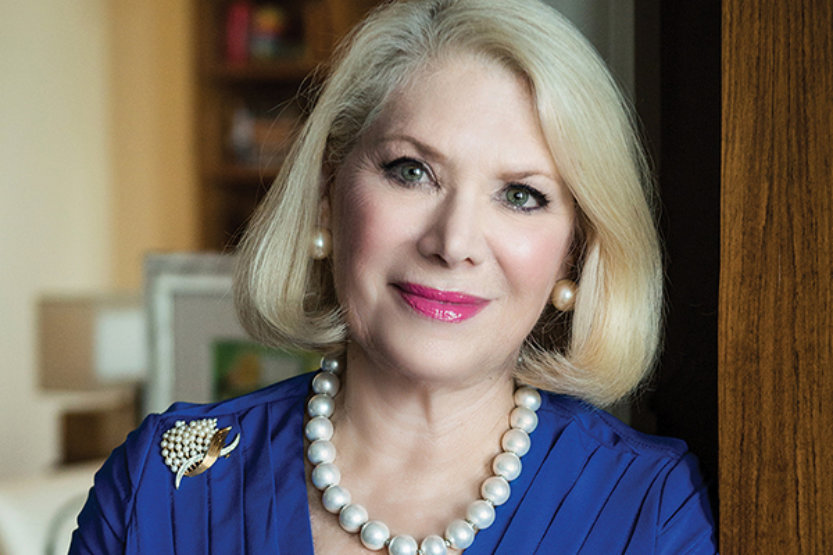Pathbreaker
 The most dramatic moment during Watergate was “seeing Rose Mary Woods’ foot come off the [tape recorder] pedal during my questioning,” says Jill Wine Banks, who served as assistant Watergate special prosecutor. (Image by Julie Kaplan)
The most dramatic moment during Watergate was “seeing Rose Mary Woods’ foot come off the [tape recorder] pedal during my questioning,” says Jill Wine Banks, who served as assistant Watergate special prosecutor. (Image by Julie Kaplan) Jill Wine Banks, ’64 MEDIA—or Jill Wine Volner, as she was known in the early 1970s—was barely 30 years old when she became the only woman on the legal team that prosecuted the highest-ranking White House officials in the Watergate scandal, a trial that brought down President Richard M. Nixon. Tagged the “mini-skirted lawyer” by the press, she toughed out the sexism, though it took its toll on her life, both personally and professionally, as she reveals in her recent book, The Watergate Girl: My Fight for Truth and Justice Against a Criminal President (2020, Henry Holt and Co.).
What was your most dramatic moment during Watergate?
Seeing Rose Mary Woods’ foot come off the [tape recorder] pedal during my questioning. People described it as the “Perry Mason moment.” It meant she couldn’t have made that famous stretch—keeping her foot on the pedal while she talked on the phone [thus inadvertently erasing an 18-and-a-half minute “gap” in the tape]. I was as astounded as anybody. All the reporters jumped out of their seats and ran from the courtroom.
What will surprise the book’s readers most?
I hope they will see that 40 years ago we had a system that we could trust to do justice, because what we’re seeing today is the exact opposite. My book is about a time when the system worked. We never felt threatened by the Dept. of Justice. We didn’t have courts that were packed with incompetent people—not just poor but unqualified. Now we can’t trust the President of the United States to tell the truth, and that’s a sad and horrifying thing.
Is sexism still as persistent as what you described?
When I practiced law, only 4 percent of lawyers were women. Now half of every law school class is made up of women. Still, many attitudes remain the same, and may be harder to combat because they are unspoken. In my era—when it was right in my face—I could confront it. Now people think it but don’t say it. If you’re in an environment where men have all the power, it’s still a problem. If you complain, you should know it may not end well for you.

